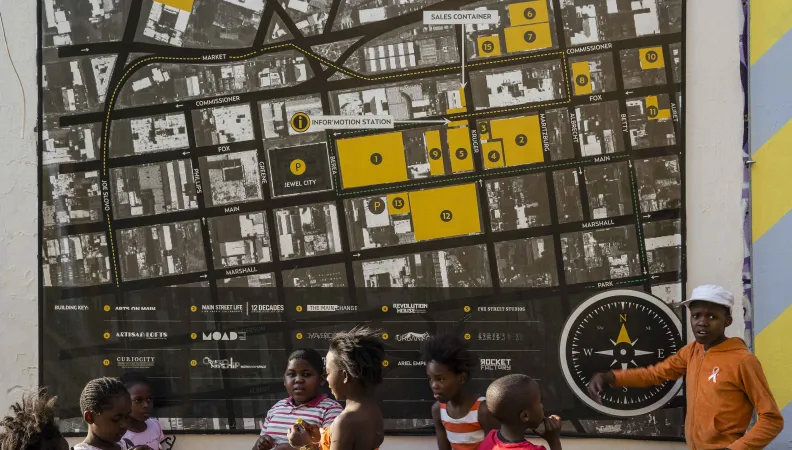Share the page
Consolidate Cape Town's resilience to climate change
Project


-
Project start date
-
-
Project end date
-
-
Project duration
-
1 year
-
AFD financing amount
-
€ 34 4205
-
Country and region
-
Location
-
Cape Town
-
Type of financing
-
Partners
-
European Union
-
Beneficiaries
-
Municipality of Cape Town
AFD, through the CiCliA European facility, is financing two studies on behalf of the City of Cape Town to support a resilient and sustainable urban future.
Context
It is estimated that by 2050, two thirds of the world’s population will live in urban areas, the result of a mass rural exodus and high population growth, particularly in Africa. The number of people living in cities will double, as will the size of urban areas, generating massive infrastructure needs and pressure on natural resources.
Cities occupy the centre stage of discussion about the mitigation of greenhouse gases and adapting to the expected impacts of climate change. Cities in Africa are already experiencing the impacts of climate change-induced disasters such as flooding, water stresses, and landslides caused by intense rainfall. Enhancing resource efficiency and implementing adaptation and mitigation strategy is key to reduce cities’ vulnerability to climate change
These issues were raised in the Yamoussoukro Declaration of 25 June 2015, which affirms the commitment of cities and regions in Africa to integrate climate change concerns into the management of urbanization and urban services, while calling for the development of financial instruments to accompany cities in the implementation of new projects and strategies.
To make their urban public policies "climate-compatible", local authorities are involved in the development of territorial climate strategies, supported by numerous development partners (networks of cities, foundations, and especially donors).
Description
AFD, in partnership with the Swiss Cooperation Agency – SECO – and the European Union, has launched CiCliA, a regional support program for local authorities, to:
- Implement territorial strategies integrating climate issues;
- Finance adequate technical support for the realization of studies of pre-investment of projects with climate co-benefits (studies and / or technical assistance);
- Accompany the implementation of these projects via technical assistance.
By 2020, CiCliA aims to support 20 to 25 African cities with projects that have mitigation and adaptation co-benefits.
Two studies were launched in 2017 in partnership with the city of Cape Town, as well as French and South African experts, and aim to:
- Develop a sustainable energy service for low-income households;
- Map vulnerabilities to and risks of climate change;
These studies will enable the Municipality of Cape Town to:
- Identify actions both in terms of urban planning and in the choice of alternative and effective energy solutions to be implemented;
- Strengthen Cape Town’s resilience to the impacts of climate change.
Impacts
Accompany Cape Town to:
- Define low-carbon, climate-resilient urban strategies;
- Translate these strategies into concrete investments;
- Help identify climate change needs for each project and a corresponding financial solution;
- Strengthen the capacity of the Municipality of Cape Town vis à vis climate change mitigation and adaptation, and improve the quality of life of the city’s residents.


